The Best Alternators to Keep Your Car Running Smoothly
Production cars began using alternators in the 1960s. As part of the electrical system, alternators made it possible for cars to use higher voltage, and led the way to the modern car charging system. The road to progress has not been without its speed bumps and potholes, however. The alternator must be considered as a possible cause whenever electrical problems arise in a car. The device is not particularly complex or fragile, but it does seem to be a frequent candidate for failure and replacement far ahead of other components under the hood.
If you need to replace your alternator, you may not believe that you’ve got much of a choice. But in fact, there are different alternators to choose from. As you can imagine however, alternators are not universal products and many of them are vehicle specific. So when you check out our recommendations, make sure to find the correct one for your vehicle.
For more information on the best alternators, refer to our table of contents.
Table of contents
- 1. Editor's Pick: Powermaster Alternators
- 2. Rare Electrical Alternators
- 3. Eagle Alternators
- 4. A-Team Performance Alternators
- 5. DB Electrical Alternators
- What is an alternator, and what does it do?
- Can I fix my alternator if it’s broken, instead of replacing it?
- Why did my alternator stop doing its job?
- How can I tell that my alternator is failing?
1. Editor's Pick: Powermaster Alternators
If you’re thinking about adding any electrical accessories to your vehicle, you are going to want to consider upgrading your alternator from stock to a high-amp unit. There are plenty of places online to find a calculator to help you figure out your system’s draw, and it’s smart to have more amperage than you need—the system will draw only what it needs, so there’s no such thing as too much capacity.
This Powermaster high-amp alternator is good for 220 amps of output, and is designed to fit GM truck engines—you’ll need to figure out if it’s a match for your application. If not, make sure to browse through all of Powermaster's offerings, as there's a good chance the manufacturer has something that fits your vehicle. The company specializes in performance alternators for a wide range of vehicles, so if you're looking for a high-amp alternator, start here.
This particular alternator offers superior output at idle and dual internals fans for better cooling. Users report solid build quality and impressive performance, especially when used with high power aftermarket audio systems and supplementary lighting setups with large current draws.
Pros | High quality, high-amp output, made in the U.S, new replacement part, not refurbished |
Cons | Substantially more expensive than stock, may be a tight fit in some applications |
2. Rare Electrical Alternators
Rare Electrical specializes in building replacement parts for popular models, and adding value with high build quality and boosted output. In addition to providing alternators, the company also manufactures and distributes starters, electric motors, water pumps, and even turbochargers and door mirrors. This 180-amp alternator is a perfect example of one of the brand's offerings, designed to work with the 2005 to 2007 Ford F-Series 6.0-liter diesel engines, a very popular fitment in the Super Duty lineup. So again, if this isn't your particular vehicle, take a look at other alternators Rare Electrical offers to find one made for your car.
The stock Bosch alternator that came with the Super Duty was an anemic 110-amp unit, scarcely powerful enough for a work truck. This alternative high-amp alternator helps to maintain a battery charge in trucks fitted with high-draw accessories, like air compressors, accessory lighting, and other work systems. The company performs computer testing on its alternators to assure quality and reliability, and includes a one-year warranty on all new alternators.
Pros | More amperage than stock, high build quality, one-year warranty, affordable price |
Cons | Internal regulator is non-replaceable, for single alternator setups only |
3. Eagle Alternators
If you need a really beefy alternator for your GM pickup, this 253-amp option should be on your list. A substantial upgrade over stock, this recommendation makes all kinds of electrical accessorizing to your vehicle possible, from adding work truck elements to help make your day more productive, to adding amplification to make your evening commute home louder, to adding under-chassis lights to make your night on the town cooler.
This particular alternator from Eagle High comes with a four-pin voltage regulator and a high-speed pulley for maximum output. You'll find that the unit is a bit larger than stock, but can still be squeezed in on most GM trucks and SUVs. If you decide to go with this high-amp alternator, the company recommends upgrading battery charge cables to 4- or 2-gauge wire to handle the substantial current that will be passing through. One nice thing about Eagle High's offering is that it comes with a test sheet, so you know you're getting the performance you paid for.
Pros | High-amperage output, big upgrade from stock, reasonable price, included high-speed pulley allows for maximum output |
Cons | Fitment may be tight depending on application, does not include cable upgrades, which are recommended |
4. A-Team Performance Alternators
When you open your hood to show off your engine bay, your alternator is one of the first things that your friends will see, as it is mounted right at the front. If you’re like me, you hate plastic engine shrouds that conceal a beautiful, clean engine installation, but you don’t want to mess with a lot of flashy chrome, either. This A-Team Performance alternator is not only a high-amp option with an output of 220 amps, it is also really cool-looking in anodized black, and a great match for a stealth LS engine in a GM truck or SUV.
It is designed to be plug-and-play with the OEM connection (4-pin connector), and is perfect for vehicles with a lot of accessories. You may find that the pulley on this alternator is slightly larger than stock, which could make reinstalling your serpentine belt a bit of a struggle, but manageable. And if you're not a fan of the black finish and prefer shiny chrome to match the rest of your engine bay, there's an option for that finish as well. As Mr. T of the A-Team might have said, “I pity the fool that don’t use a high-amp alternator.”
Pros | Looks great in black finish, high amp output, wide range of fitment, reasonable price, also available in chrome |
Cons | Large pulley may make installation tougher |
5. DB Electrical Alternators
DB Electrical makes high-quality, aftermarket replacement alternators that meet or beat OEM specs. This recommendation is a great example, because it is designed to work with the 2002 to 2005 Ford F-150 with the 5.4-liter Vortec V8 engine—not coincidentally the most popular engine choice on the top-selling vehicle in the United States during those years.
It's a 110-amp alternator that weighs under 13 pounds and measures 5.71 inches by 4.91 inches by 5.05 inches, a direct swap for stock. If features a six-groove serpentine pulley for minimal slip, and an internal regulator. It uses high-temperature epoxy and grease for superior heat resistance, and top-quality bearings and heavy-duty rectifiers to extend service life. It comes with a one-year warranty, and DB Electrical’s guarantee of perfect fitment, along with final test results and performance curves if available. So if you don't need a high-amp alternator and prefer a direct OEM replacement, this company's alternators are the way to go.
Pros | Affordable alternative to OEM unit, new, not refurbished, good warranty |
Cons | Amp output matches stock, not a high-amp option |
What is an alternator, and what does it do?
Photo credit: BirdShutterB / Shutterstock.com
An alternator is an engine component that is part of the electrical system. It produces alternating current (AC) power by the process of electromagnetism, which is generated by the relationship of the stator and rotor inside its housing. The electricity is sent to the battery, where it is used to run the electrical systems on the car. The alternator is generally mounted to the front of the engine. Its internal components are rotated by a shaft attached to a drive pulley that turns thanks to a belt connected to the engine’s crankshaft.
Can I fix my alternator if it’s broken, instead of replacing it?
In general, it’s easier to replace an alternator than to attempt to repair it. That said, there are alternator repair kits available for $30 and under. If you’re handy enough to replace your own alternator, you might be handy enough to effect a repair. Since a new alternator can run from $100 to $500, depending on make and model, it might be worth a try.
Why did my alternator stop doing its job?
The main cause of alternator trouble is bearing failure. When the needle bearings that let the rotor spin freely break down, the rotor no longer spins efficiently, and may even freeze up. Once this happens, your alternator is pretty much toast, and needs to be replaced.
How can I tell that my alternator is failing?
Your car will give you a hint, with dimming dashboard lights and hard starting. If you have a voltage meter on your instrument panel (some cars still do), low voltage (below 14 volts) can be an indicator of impending doom. Your car may be difficult to start, and if you drive with a failing alternator, you might put yourself in a bad, unsafe situation on the road. Your electrical system will slow down and stop functioning, and the battery will soon go dead. Without a working alternator, your car cannot run for long. Before jumping to the conclusion that you’ve got a bad alternator, have your battery tested and check out the belts and wires under your hood to make sure that everything is in good repair.
We are committed to finding, researching, and recommending the best products. We earn commissions from purchases you make using the retail links in our product reviews. Learn more about how this works.
Photo credit: BACHTUB DMITRII / Shutterstock.com
More by Jason Fogelson



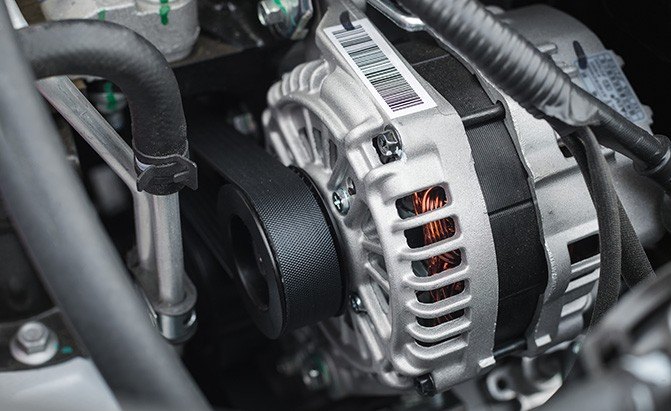
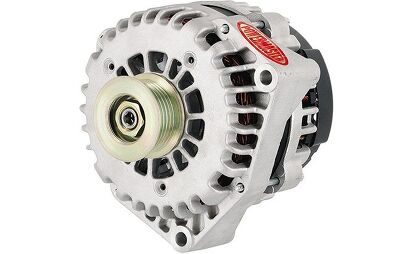















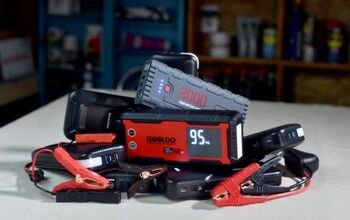


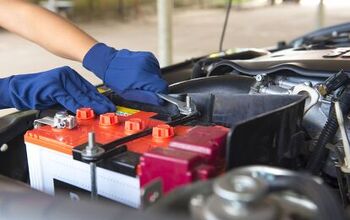

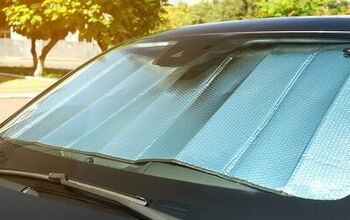
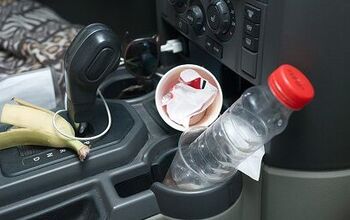





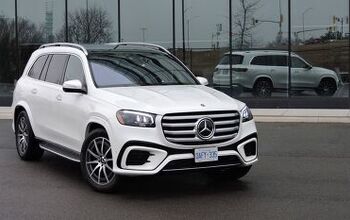
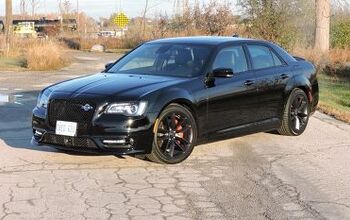

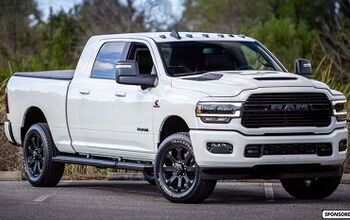


Comments
Join the conversation